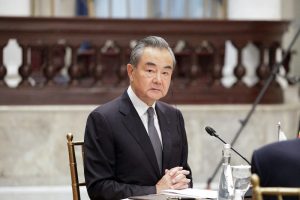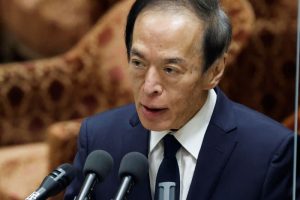(ATF) The People’s Bank of China has said a recent survey shows that 67% of residents believe that their income is “basically unchanged” this quarter, and just under 16% of residents believe that their income has “increased”.
In fact, this was the case in the last quarter, when 64.5% of urban residents believed that their income remained basically unchanged, and nearly 14% of urban residents believed that their income had increased.
In the second quarter, the number of people who believed that their income had risen increased by 3.2% compared to the first quarter, which means the third quarter rise was 5.2% compared to the first quarter.
On housing prices, the report shows that for the next quarter a quart of residents (25.1%) expect housing prices to “rise”, while 51.2% of residents expect the market to remain “basically unchanged”, and 11% of residents expect a “decrease”, while 12.7% of residents were “not sure”. In the next three months, 20.1% of residents surveyed by the bank plan to buy a house.
This was an improvement on findings on the second quarter data, when 22.8% were bullish, 51.2% were unchanged, 13.2% expected prices to fall, while 12.8% of residents were “unsure”, and 19.7% intended to buy a house in the next three months.
From this, it is not difficult to see that the number of people who intend to buy a house in the next three months has increased by 0.4% compared to the previous quarter. The number of people who believe that house prices will rise and fall has also risen, and those who expect house prices to remain basically unchanged are similar.
The figures suggest that the “stability” of the real estate market has given people confidence that a steady environment is being maintained.
Rising housing prices are essentially a monetary phenomenon. With a steady stream of funds entering the real estate market, the financial value of houses gets stronger.
Over generations companies and individuals have joined China’s army of real estate speculators, pushing up housing prices step by step.
The soaring land price is caused by bidding at auctions and listings have become the main reason for the increase in housing prices.
Evergrande debt crisis
The debt-laden Evergrande Group is selling properties at a 30% ‘discount’ which led many to speculate that China’s real estate “bubble” was about to pop, but sales by Evergrande are aimed at it getting funds to manage its huge debt ratio. This seems a like an exception in the property sector, not the rule.
China’s leaders have been repeating their line that “houses are for living and not for speculation.” But as almost 20% of urban residents hope to buy new property in the next three months, it would appear that public lip-service to dictates from party central aren’t really being listened to.
The Central Bank’s “Report on Urban Depositors in the Third Quarter of 2020” was a survey of 20,000 urban depositors in 50 cities across the country. It yielded other insight as well.
In terms of consumerism, savings and investment, 23.5% of residents are tending to “consume more”, an increase of 0.2% from the previous quarter. And residents who tend to “save more” account for 50.4%, a decrease of 2.5% from the previous quarter. Plus a large 26.1% of residents tend toward “investing more” – an increase of 2.3 percentage points from the previous quarter.
The top three investment methods preferred by residents are: “banks, securities, and insurance company wealth management products”, “fund trust products” and “stocks”. The proportions of residents who choose these three investment methods were 47.5%, 24.4% and 16.9%.
When asked about plans to increase expenditure in the next three months, residents’ choices from high to low were: Education (30.9%), healthcare (28.1%), tourism (21.6%), house purchase (20.1%), and purchase of goods (18.9%), socialising, culture and entertainment (17.5%), and insurance (15.0%).
























